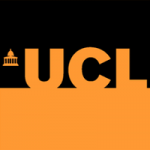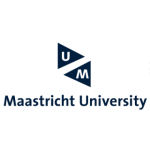项目介绍
Overview
The world-leading research groups of the department (Professor John O’Keefe was awarded the 2014 Nobel Prize) study biological questions ranging from molecule to man. These are listed below and are remarkable in their breadth and depth, from fundamental aspects of cell biology through to behaviour, and from key questions in biology to understanding mechanisms of human disease.
Research areas
- Affective disorders
- Alzheimer’s Disease
- Bioinformatics and computational biology
- Biological clocks/sleep
- Calcium signalling
- Cancer cell biology
- Cell migration
- Cell signalling and signal transduction mechanisms
- Early development (e.g. fertilisation, gastrulation, embryonic induction)
- Evolution and development
- Intracellular movements: endocytosis, exocytosis, RNA, protein, lipid and organelle traffic
- Learning, memory and long-term change in the nervous system
- Left-right asymmetry
- Live cell imaging
- Mitochondrial biology
- Neural crest migration and differentiation
- Neural development and neural cell biology
- Neuroaesthetics
- Neurodegenerative disease
- Parkinson’s Disease
- Pain
- Regeneration and repair
- Stem cell biology
- Systems and synthetic biology.
More information can be found on the department website: Cell and Developmental Biology MPhil/PhD
About this degree
Additional costs
Your research degree may be subject to an Additional Fee Element (AFE). The AFE (also known as bench fees) is an additional cost, incurred by yourself or your sponsor. It is levied to cover the costs related to consumables, equipment and materials etc which are not included in the tuition fee. As each research project is unique in nature, the AFE is calculated on a student by student basis and is determined by your academic supervisor.
For more information on additional costs for prospective students please go to our estimated cost of essential expenditure at Accommodation and living costs.
Accessibility
Details of the accessibility of UCL buildings can be obtained from AccessAble accessable.co.uk. Further information can also be obtained from the UCL Student Support & Wellbeing team.
Funding
Across the School of Life and Medical Sciences there is a wealth of graduate programmes that will bring students into the department. You may approach academic staff individually as there is a variety of intradepartmental options or opportunities to write grant applications for PhD funding.
You may also apply for any of the other programmes listed on our department’s website which are suitable for your skills and interests. These include four-year programmes where the first year is spent taking taught courses or in laboratory rotations before deciding on a final PhD laboratory and project; there are also several three year programmes where you enter the PhD host department directly.
For a comprehensive list of the funding opportunities available at UCL, including funding relevant to your nationality, please visit the Scholarships and Funding website.
Careers
Many of our recent graduates have taken up postdoctoral positions, for example in the UK at UCL, Imperial College London and Manchester University; in Europe at San Raffaele Telethon Institute for Gene Therapy, Milan; and across the world at Harvard Stem Cell Institute, Boston and FundRx, New York. Some have continued their studies, become an FY1 doctor, taken up positions in teaching or at a New York charitable trust; others have progressed to become principal investigators at UCL, Cambridge and New York.
Employability
UCL is an internationally recognised and respected institution. A graduate degree from UCL opens up numerous national and international employment opportunities. Most of our graduate students pursue very successful careers in science and medicine. Two of our recent students have been awarded the Beddington Medal.
Networking
UCL and its extended network of research institutes are located in the centre of London and surrounded by numerous other research institutions, including the Francis Crick Institute and the Sainsbury Wellcome Centre for Neural Circuits and Behaviour. Students are encouraged to meet and collaborate extensively with members of these institutions. Regular seminars and training courses encourage interaction across London, the UK and Europe. You’ll regularly attend international conferences, workshops and retreats, providing opportunities for networking with colleagues and potential future employers.
Why study this degree at UCL?
The groups at UCL are world-leading, generating seminal contributions to their fields of study. Students working in the laboratories are welcomed into vibrant groups of enthusiasts, exposed to a wealth of expertise in an extraordinarily open and collaborative scientific community. Access to expert help in almost any conceivable area is available through the extensive network of scientists that makes up the UCL scientific community.
Within the departments there are regular laboratory meetings, project presentations, journal clubs, student-led symposia and other opportunities to hone presentation skills and training, extended through regular seminars from experts around the world and locally organised international symposia.
Department: Cell & Developmental Biology
What our students and staff say
Student review
“The state-of-the-art imaging facilities at UCL particularly impressed me. The three short rotation projects at the start of my PhD were really valuable to me, as this enabled me to try out different projects and work with three different supervisors in a range of laboratory environments. This allowed me to make an informed choice when settling on my final PhD project, which was useful as my final choice ended up being quite different from what I think I might have initially chosen on paper!”
RACHEL BONNINGTON
Cell and Developmental Biology PhD, Developmental and Stem Cell Biology PhD
Staff review
“I was attracted to UCL because of the excellent scientific research in different Life and Medical Sciences departments. My own research focuses on the glial cells of the nervous system and my present interest is on how Schwann cells respond to nerve injury by reprogramming themselves to provide a favourable environment for nerve (axonal) regeneration.”
PROFESSOR RHONA MIRSKY
Cell and Developmental Biology MPhil/PhD
Student review
” My experience in my one year MSc in Neuroscience programme led by Dr. Andrew Batchelor was what sealed my interest in continuing towards a PhD at UCL. Research is a deeply personal endeavour and I truly believe we are only as good as those we surround ourselves with. UCL has surrounded me with excellent, world-class researchers who care deeply about me as a student and who have lifted me up. I think this is fundamentally unique.”
SHANNON SHIBATA-GERMANOS
Cell and Developmental Biology PhD
Application and next steps
Applications
Students are advised to apply as early as possible due to competition for places. Those applying for scholarship funding (particularly overseas applicants) should take note of application deadlines.
This programme requires two references. Further information regarding references can be found in our How to apply section.
Application deadlines
All applicants30 July 2021
Research degrees may start at any time of the year, but typically start in September. Deadlines and start dates can be dictated by funding arrangements for studentships and scholarships, so please check these on the department’s website before submitting your application. In most cases you should identify and contact potential supervisors before making your application. For more information please see our How to apply page.
For more information see our Applications page.
录取要求
-
A minimum of an upper second-class UK Bachelor’s degree in an appropriate subject or an overseas qualification of an equivalent standard, or a recognised Master’s degree in an appropriate subject.
联系方式
电话: +44 (0) 20 7679 2000相关项目推荐
KD博士实时收录全球顶尖院校的博士项目,总有一个项目等着你!






